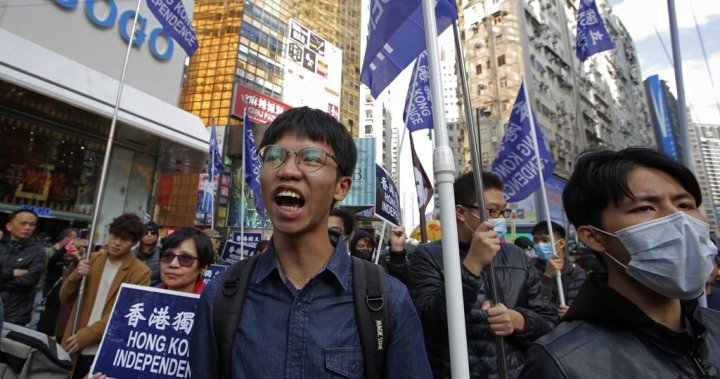The Hong Kong government has intensified its crackdown on pro-democracy activists abroad by issuing arrest warrants for six individuals residing overseas, accompanied by bounties of HK$1 million (approximately US$128,000) each for information leading to their apprehension. This latest move signals a widening net cast by the authorities, targeting individuals accused of national security offences such as secession, subversion, and collusion with foreign forces. The six individuals include former student leader Tony Chung, ex-district councilor and activist Carmen Lau, and prominent activist Chloe Cheung. This action follows previous rounds of warrants issued against other high-profile activists, highlighting a sustained campaign to suppress dissent beyond Hong Kong’s borders.
The charges against these activists stem from their involvement in the 2019 pro-democracy protests that rocked Hong Kong. These protests, triggered by a controversial extradition bill, evolved into a broader movement demanding greater political autonomy and freedoms. The Chinese government responded with the imposition of the National Security Law in 2020, a sweeping piece of legislation aimed at curbing dissent and strengthening Beijing’s control. This law has been widely criticized by international human rights organizations for its broad scope and potential for abuse. The warrants represent a further escalation in the government’s efforts to stifle opposition, extending its reach to individuals who have sought refuge in other countries.
The targeted activists have demonstrated resilience in the face of these threats, vowing to continue their advocacy for Hong Kong’s democratic future. Tony Chung, previously arrested under the National Security Law, expressed a sense of validation, viewing the warrant as affirmation of his commitment to Hong Kong’s self-determination. Chloe Cheung, a young activist, highlighted the perceived insecurity of the regime, questioning its fear of a 19-year-old. Carmen Lau called on international governments to impose sanctions on those responsible for human rights violations in Hong Kong and to support the territory’s right to self-determination. Their defiant responses underscore the determination of the pro-democracy movement to persist despite the ongoing crackdown.
This latest action by the Hong Kong government has drawn condemnation from human rights organizations, who view it as an act of intimidation aimed at silencing dissent abroad. Concerns have been raised about the implications for freedom of speech and the right to peaceful protest. The targeting of individuals residing in democratic countries like the UK and Canada has also raised diplomatic tensions, with calls for these governments to protect their citizens and push back against the Hong Kong government’s overreach. The issuing of arrest warrants and bounties for individuals residing overseas represents a significant escalation in the ongoing conflict between the pro-democracy movement and the Hong Kong government, backed by Beijing.
The Hong Kong government’s actions form part of a broader pattern of repression against the pro-democracy movement. Since the implementation of the National Security Law, numerous activists, journalists, and political figures have been arrested, prosecuted, and imprisoned. The judiciary has been criticized for its perceived lack of independence, with concerns raised about fair trial rights and due process. Civil society organizations have been forced to disband or curtail their activities under pressure from the authorities. The space for political dissent and freedom of expression in Hong Kong has shrunk dramatically.
Beyond the individual cases of the activists targeted by these latest warrants, the situation in Hong Kong raises broader questions about the future of the “one country, two systems” framework. This framework, which was supposed to guarantee Hong Kong a high degree of autonomy until 2047, has been significantly eroded in recent years. The increasing influence of Beijing and the suppression of dissent have cast doubt on the viability of this model. The international community continues to grapple with how to respond to these developments, balancing concerns about human rights and democratic values with complex geopolitical considerations. The warrants and bounties represent not just an attack on individual activists, but a symbolic challenge to the principles of freedom and autonomy that were once central to Hong Kong’s identity.

